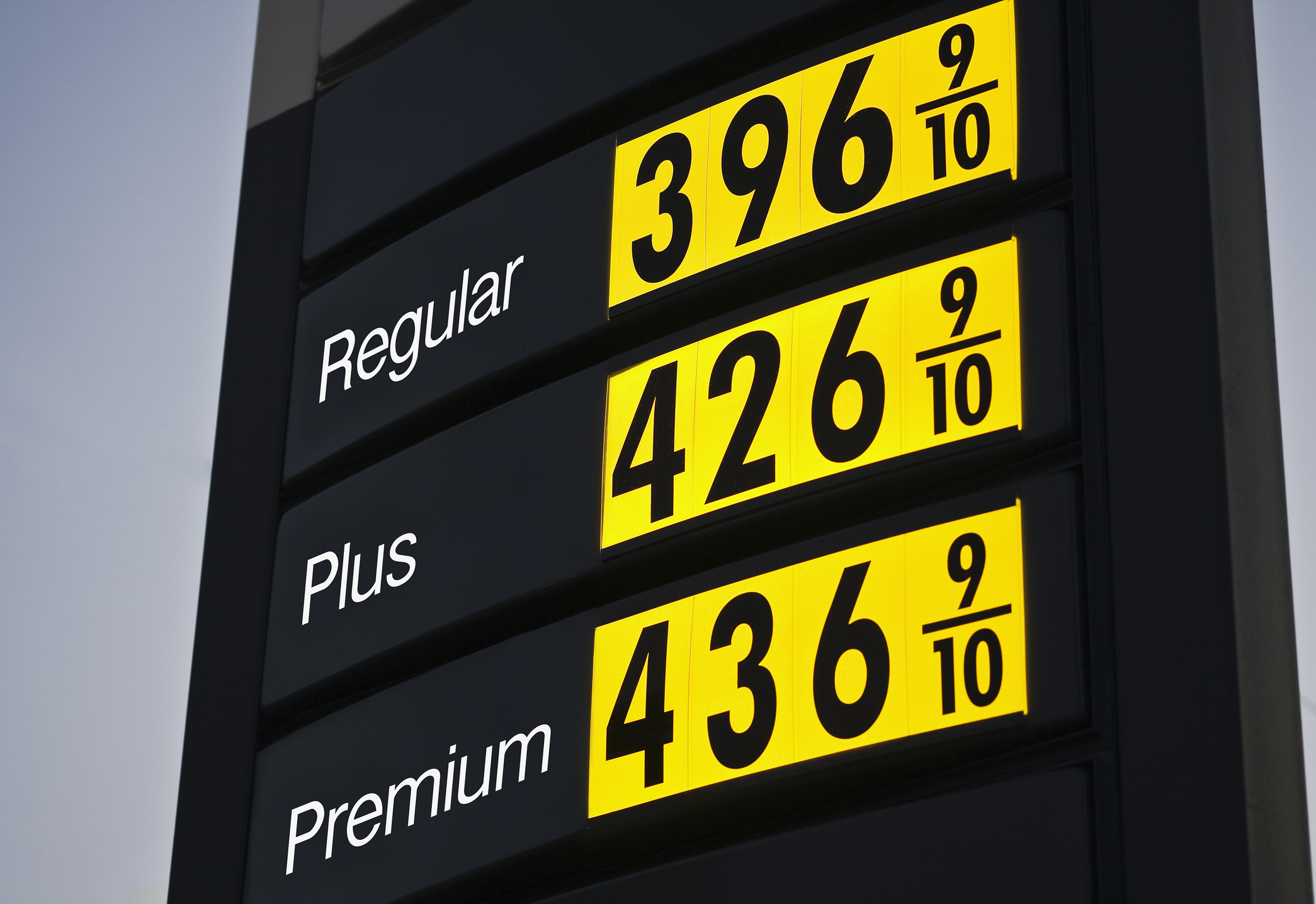Deals Available on Used Cars
More trade-ins are hitting the market, and prices are edging down.

Profit and prosper with the best of Kiplinger's advice on investing, taxes, retirement, personal finance and much more. Delivered daily. Enter your email in the box and click Sign Me Up.
You are now subscribed
Your newsletter sign-up was successful
Want to add more newsletters?

Delivered daily
Kiplinger Today
Profit and prosper with the best of Kiplinger's advice on investing, taxes, retirement, personal finance and much more delivered daily. Smart money moves start here.

Sent five days a week
Kiplinger A Step Ahead
Get practical help to make better financial decisions in your everyday life, from spending to savings on top deals.

Delivered daily
Kiplinger Closing Bell
Get today's biggest financial and investing headlines delivered to your inbox every day the U.S. stock market is open.

Sent twice a week
Kiplinger Adviser Intel
Financial pros across the country share best practices and fresh tactics to preserve and grow your wealth.

Delivered weekly
Kiplinger Tax Tips
Trim your federal and state tax bills with practical tax-planning and tax-cutting strategies.

Sent twice a week
Kiplinger Retirement Tips
Your twice-a-week guide to planning and enjoying a financially secure and richly rewarding retirement

Sent bimonthly.
Kiplinger Adviser Angle
Insights for advisers, wealth managers and other financial professionals.

Sent twice a week
Kiplinger Investing Weekly
Your twice-a-week roundup of promising stocks, funds, companies and industries you should consider, ones you should avoid, and why.

Sent weekly for six weeks
Kiplinger Invest for Retirement
Your step-by-step six-part series on how to invest for retirement, from devising a successful strategy to exactly which investments to choose.
For the first time since the economy took a dive five years ago, things are looking up for used-car buyers. More three-year-old vehicles are finding their way to used-car lots, thanks to an increase in new-car sales and leases starting in 2010. More supply means more-competitive prices, says Tom Kontos, chief economist for Adesa, a vehicle auction company.
See Our Slide Show: Best Values in Used Cars, 2013
You won't see the supercheap prices of a decade ago, when record-high new-car sales funneled a glut of used vehicles into the market. Changes in the auto industry, particularly among Detroit and Korean car makers, are also propping up prices. The Big Three have adjusted production to better fit demand and no longer have to offload a ton of vehicles at deep discounts, which decreased their long-term resale values. Korean automakers Hyundai and Kia have improved quality, boosted market share and earned higher resale values, too. Plus, demand for used cars isn't forecast to ease much, and that will put a damper on price drops.
Still, prices should ratchet down a bit further this fall and into 2014, as even more used vehicles enter the market. Whether you buy now or later, use these strategies to find the best deals.
From just $107.88 $24.99 for Kiplinger Personal Finance
Become a smarter, better informed investor. Subscribe from just $107.88 $24.99, plus get up to 4 Special Issues

Sign up for Kiplinger’s Free Newsletters
Profit and prosper with the best of expert advice on investing, taxes, retirement, personal finance and more - straight to your e-mail.
Profit and prosper with the best of expert advice - straight to your e-mail.
Scout out the deals
High gas prices have helped boost compact-car sales and have taken a toll on SUVs, evening out supply in the various segments. Even so, some categories have more room for negotiation than others, and vehicles that were bestsellers when they were new are often in plentiful supply on the used market. You'll have more negotiating power if another dealer has a nearly identical car on its lot. Also, if a vehicle has recently been redesigned, you can often scoop up an older model at a discount. It's the same with colors: Red, black, silver and white hold their value best, so the pea-green model is probably a steal.
You could buy a car from a defunct brand, as long as the parent company still operates in the U.S. Saturn, Pontiac and Mercury are all recently extinct but have the backing of General Motors and Ford. Suppliers are still making parts, GM and Ford are honoring warranties, and getting service won't be an issue. (Saab and Suzuki, by contrast, have less-certain futures because the companies have pulled out of the U.S. market altogether.)
Look for vehicles with higher mileage. We're trained to think that less is always better, but the discount on a higher-mileage car may be enough to sway you. The extra wear and tear is less of an issue than it used to be. Reliability is at an all-time high, according to J.D. Power's annual vehicle-dependability study, and many vehicles have longer warranties. For example, all GM brands (for 2012 and prior models) and Chrysler brands (for 2010 and later models) cover powertrains for 100,000 miles and transfer to subsequent owners.
Finally, instead of searching only in your backyard, widen your range to include your state or even the whole country. Covering more ground lets you take advantage of regional price differences. You can set the search area for 500 miles or more on most car-listing sites. Or try eBay Motors. Most vehicles are eligible for $50,000 in vehicle purchase protection against fraud when the transaction is completed through eBay.
If you find a vehicle you like, make sure you won't eat up your savings getting the car delivered — either with a shipping company or a one-way plane ticket and gas for the trip back. Cross-country transport will likely cost $900 to $1,300, but most shippers are willing to negotiate. On eBay, you can get a custom quote on each vehicle page under the "Shipping" tab.
Ask what it could cost to ship the vehicle immediately compared with waiting until a truck is full, and inquire about shipping it to a terminal near you instead of directly to your home.
Do the research
Once you've settled on a make and model, check out Consumer Reports' reliability rankings. A subscription to the Web site costs $30 annually ($20 if you already subscribe to the magazine) or $6.95 a month. Check safety ratings on SaferCar.gov and the Insurance Institute for Highway Safety's Web site.
Next, head to Edmunds.com. You can do research on model years and features and get prices by entering the make and model in the search box. On any vehicle's information page, click the "Inventory" button to search dealer listings. Once you've nailed down a couple of choices, see how the asking prices stack up to Edmunds.com's True Market Value (TMV) by using the Appraise Your Car tool.
For more options, check out the biggest listing sites: Cars.com, AutoTrader.com and CarGurus.com, which aggregates listings from Autobytel, Cars.com and other sites.
Certified pre-owned cars are your best bet if you're looking for a new-car experience with a used-car price tag. They're low-mileage, recent models (typically three to four years old) that undergo rigorous inspection and come with extra warranty coverage. You'll pay a premium of about $1,500 on mainstream brands and $3,000 on luxury vehicles, but the peace of mind may make it worth the extra scratch. (If you find a vehicle that's only a year or two old, compare its cost with the cost of a brand-new model; sometimes buying new is actually cheaper.)
Always buy through a manufacturer's certification program; dealers may offer their own "certification," but that's an extended warranty in disguise. For more on certified pre-owned programs and brand ratings, go to www.intellichoice.com. Volvo wins top honors in IntelliChoice's annual rankings of CPO programs for premium manufacturers, and Hyundai is tops for mainstream makes.
Buying from a private seller can save you 10% to 15% compared with buying from a dealer, says Keith Griffin, who writes the guide to used cars at About.com. Keep in mind that all private car sales are "as is." If the transmission goes bad in a month, it's your problem. Rental-car fleet sales are another good way to save (try www.enterprisecarsales.com, www.hertzcarsales.com or www.thriftycarsales.com).
Protect your wallet
Introducing competition is the best way to get the best deal. Find a few cheaper vehicles that closely match the one you've selected in mileage and features, and use those cars as bargaining chips to knock down the price. Use Edmunds.com's TMV as a starting point, but remember that it's an average of recent transactions, which means some are higher but some are lower. In March, dealers were getting 94% of their asking prices, so start the haggling with 10% off.
"Don't be embarrassed about offering lower than the asking price or TMV, and don't let a dealer make you feel that way," says Joe Spina, senior analyst for Edmunds.com. "If they're going to make money on the car, they're going to make the deal."
The longer a model has sat on the lot, the more eager the dealer will be to unload it. Check the Carfax report to see when the dealer purchased the car. If it has been 30 to 60 days, lower your offer a little more. CarGurus.com provides a Leverage section that shows how long the vehicle has been listed, in addition to price history and dealer ratings. The site also analyzes prices based on listings in your area for the same make, model and features. Each vehicle is rated from "Great Deal" to "Overpriced."
Before you head to the lot, ask your bank or credit union to preapprove you for a loan. All the captive finance companies (those backed by the manufacturer) offer cut-rate financing for certified pre-owned models — typically 1.9% — but a dealership's rates for used cars aren't as competitive as they are for new models. Five-year used-car loans recently averaged 7.3%, according to Edmunds.com. Credit unions typically offer lower rates than banks and most dealerships (to join a credit union, visit www.culookup.com).
Hurricane Sandy left a lot of waterlogged vehicles in its wake, and you don't want to end up with one of them. A vehicle-history report from Carfax or AutoCheck lists accident reports, odometer readings and flood damage. You'll pay $30 to $40 per report, or $45 to $50 for several (some dealers and eBay listings offer the reports free). Even if you go the CPO route, some experts recommend getting a history report to verify where the vehicle has been. A vehicle can have an accident and still get certified.
Your final step before writing a check is an inspection. A mechanic will likely charge $50 to $100, but it's worth every penny. If you don't have a trusted shop, consider an inspection by AiM. For $129, it conducts a 150-point inspection, which it arranges with the seller, and sends you a report.
Getting the price you want for the used car you seek is just one part of the game. Your trade-in is part two. Because supply is just starting to come around, you still have leverage to get a good price on your old vehicle. Keep the trade-in separate from the purchase. That way, the dealer won't lower the price for the car you're buying while low-balling your trade-in. You may do better selling your old car to a different dealer. About.com's Griffin suggests getting your car's service records together and having the car detailed ($50 to $150) before shopping it around. If there's a CarMax in your area, get its offer, too.
This article has been revised to reflect the following correction:
Correction: May 3, 2013
An earlier version of this article incorrectly stated the details of powertrain warranties. Hyundai, Kia and Mitsubishi 100,000-mile powertrain warranties do not transfer to subsequent owners, while Chrysler’s are transferable.
Profit and prosper with the best of Kiplinger's advice on investing, taxes, retirement, personal finance and much more. Delivered daily. Enter your email in the box and click Sign Me Up.

-
 Dow Adds 1,206 Points to Top 50,000: Stock Market Today
Dow Adds 1,206 Points to Top 50,000: Stock Market TodayThe S&P 500 and Nasdaq also had strong finishes to a volatile week, with beaten-down tech stocks outperforming.
-
 Ask the Tax Editor: Federal Income Tax Deductions
Ask the Tax Editor: Federal Income Tax DeductionsAsk the Editor In this week's Ask the Editor Q&A, Joy Taylor answers questions on federal income tax deductions
-
 States With No-Fault Car Insurance Laws (and How No-Fault Car Insurance Works)
States With No-Fault Car Insurance Laws (and How No-Fault Car Insurance Works)A breakdown of the confusing rules around no-fault car insurance in every state where it exists.
-
 10 Things You Should Know About Buying a Car Today, Even if You've Bought Before
10 Things You Should Know About Buying a Car Today, Even if You've Bought BeforeIf buying a car is on your to-do list, and it's been a while since you went shopping for a new one, this guide will help avoid any nasty shocks in the showroom.
-
 Get the Best Car Deal in Retirement: Here's the Trick
Get the Best Car Deal in Retirement: Here's the TrickPlanning on shopping for a new car this Labor Day weekend? Here’s how to haggle for a better price, even though you're retired.
-
 7 Gas-Saving Tips That Actually Work
7 Gas-Saving Tips That Actually WorkThese are gas-saving tips that will actually work for you and your car this year.
-
 Want to Lease an EV? The Tax Credit 'Loophole' for That Is Going Away Soon
Want to Lease an EV? The Tax Credit 'Loophole' for That Is Going Away SoonTax Credits If you are deciding whether to lease or buy an electric vehicle, here is what you need to know about how the EV lease tax credit works now that it will be eliminated under Trump's new tax law.
-
 Car Buying in a Topsy-Turvy Market
Car Buying in a Topsy-Turvy MarketYou need a new car? Good luck with that! What should you do? We've got some answers.
-
 Watch Out for Flood-Damaged Cars from Hurricane Ian
Watch Out for Flood-Damaged Cars from Hurricane IanBuying & Leasing a Car In the wake of Hurricane Ian, more flood-damaged cars may hit the market. Car prices may rise further because of increased demand as well.
-
 Car Buyers: The 3-Day Grace Period Is Just a Myth!
Car Buyers: The 3-Day Grace Period Is Just a Myth!Buying & Leasing a Car Many car buyers think they have three days after making a purchase to return a car. Here’s where they’re going wrong, and what they should do instead to get a decent used car.
-
 PODCAST: Car-Buying in an Inflated Market with Jenni Newman
PODCAST: Car-Buying in an Inflated Market with Jenni NewmanBuying & Leasing a Car With cars both scarce and expensive these days, what to do if you want – or need – a new ride? Car-buying strategist Jenni Newman of Cars.com shares some tips. Also, more on the magical 9% savings bond.